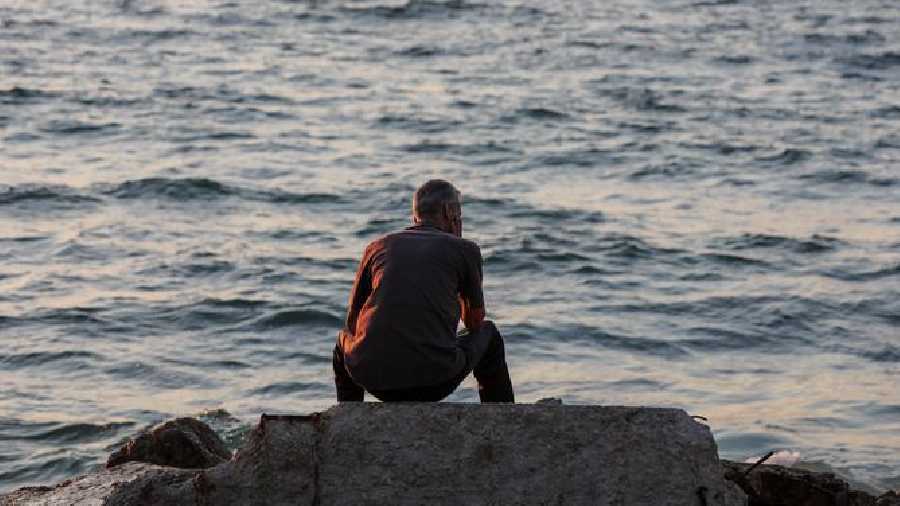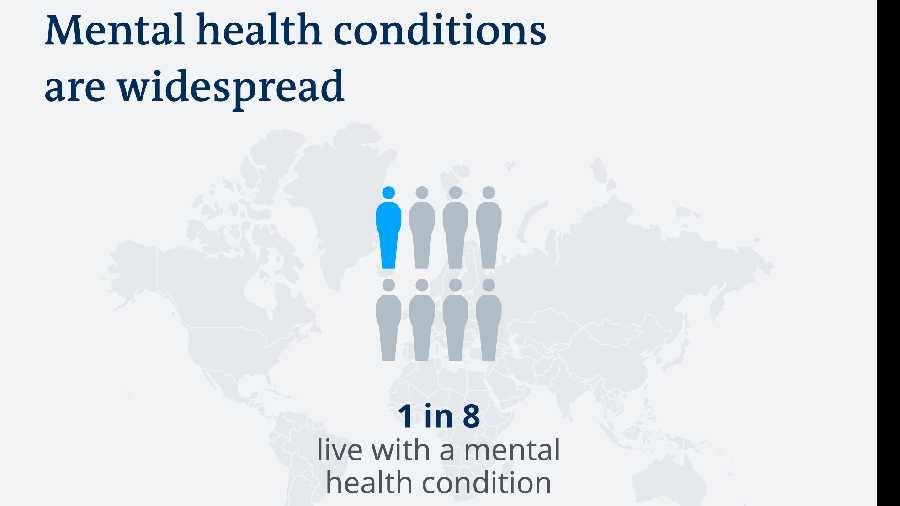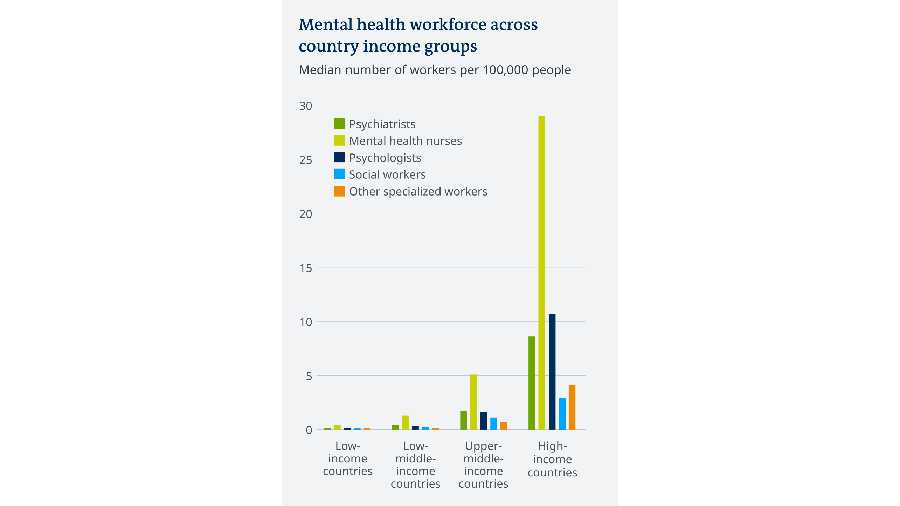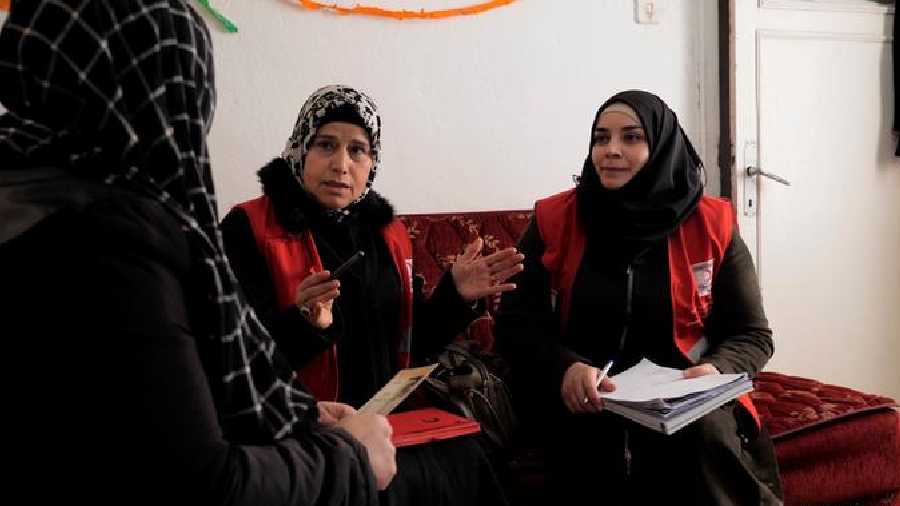Around the world, people need mental health support now more than ever. Local and global initiatives are starting to make a difference.
Access to mental health support is difficult in many countries.
Deutsche Welle
October 10 is World Mental Health Day, an event by the World Health Organization (WHO) to “raise awareness of mental health issues around the world and mobilize efforts in support of mental health.”
Mental health advocates, including the WHO, have been pushing hard to reform mental health care for decades. This year, they emphasize that a perfect storm of events, from the coronavirus pandemic to economic downturns, has had a huge impact on mental health around the world.
According to the WHO Global Mental Health report released earlier this year, depression and anxiety increased by 25% in the first year of the pandemic, bringing the total number of people living with a mental disorder to almost billion people.
“Furthermore, mental health services have been severely disrupted in recent years and the treatment gap for mental health conditions has widened,” a WHO spokesperson said.
A special initiative for mental health
So what is being done about it? In 2020, WHO established the Special Initiative for Mental Health. It is one of the WHO’s most ambitious mental health programs to date, aiming to increase access to mental health services for 100 million people in 12 countries, including Ukraine, Jordan and Zimbabwe.
“A lot of countries have very outdated mental health service mandates,” Alison Schafer, a technical adviser at the WHO department of mental health, told DW. “We are working with countries to change their approaches so that more people have access to support.”
Since the initiative began in January 2020, an additional 5 million people have gained access to mental health and psychosocial support, according to the WHO. Psychosocial support involves building networks around people in need, often through family and local structures.
Schafer said it took two and a half years to establish the initiatives. “But now we hope that more and more progress will be made towards expanding mental health services so that more people can access support.”
One of the biggest successes so far has been providing mental health and psychosocial support during crises like the COVID-19 pandemic and for people affected by conflict in Ukraine and the Philippines.
“We’re having the most immediate impact on people here,” Schafer said, calling crisis support “key.”
Schafer also cited the first successes in countries like Paraguay that have allowed consultations with psychiatrists through video calls. During the coronavirus pandemic, video consultations were particularly effective in maintaining community support.
“It sounds simple enough to achieve, but what was missing was the infrastructure,” he added.
General approach to mental health Schafer said that the uniqueness of the WHO mental health initiative lies in its general approach.
“There is no single way to approach mental health services and supports. It requires a broader perspective than has been seen before, not just focusing on individual interventions or groups, but on an entire system of health care services and related mental health services, which may be offered in health care, but also in schools, community organizations, religious groups and businesses,” he said.
One of the goals of the initiative is to focus on providing support to groups at risk. At-risk groups include, but are not limited to, people who experience discrimination or human rights violations, including people who identify as LGBTQ.
“We are already seeing early successes, for example helping people understand that same-sex sexual attraction is not a mental disorder, but that they may be at increased risk of mental health problems due to social stigma and discrimination, and they need support,” Schafer said.
According to Schafer, success comes from basing mental health support on scientific evidence, decades of learning, and improving the rights of people living with mental health and psychosocial disabilities. But the initiative has not been without its challenges.
“Some countries are further along in their progress,” Schafer said. “The WHO Mental Health Special Initiative is working to facilitate such changes so that the expansion of mental health services can be sustained and further enhanced.”
Community-led programs offer lasting mental health support
While the WHO initiative is seeing initial successes, the project will end in 2023. It is unclear what will happen to the new mental health support networks after that.
Renée Eloundou, an anti-discrimination consultant at the Berlin-based counseling organization Sources-d’Espoir (sources of hope), criticizes mental health initiatives that have fixed durations.
“The help that people need does not have an end point. The mental instability that people find themselves in is very difficult to manage. It takes time for people to open up and talk. It takes time to establish support networks” Eloundou tells DW.
Sources-d’Espoir provides advice and support to immigrant communities in Germany, in particular black communities.
The link between mental health problems and discrimination, Eloundou said, is striking.
“People [who] experience discrimination are often ashamed or part of the problem. They feel alienated by government-run structures, which makes them isolated and prone to mental health problems,” she said.
About 98% of the organization’s team is made up of black women who came to Germany as adults. Eloundou emphasized the importance of psychosocial care being led by people from the very communities they are trying to help.
“Community action is a must. Our team has similar experiences of discrimination, so you can easily relate to someone and look at the signs of mental health issues. It helps build trust around mental health,” Eloundou said.
“If you want to tackle mental health issues, you need to engage with communities and engage with experts who have the skills,” he added.
“Then you can make a lasting change.”



